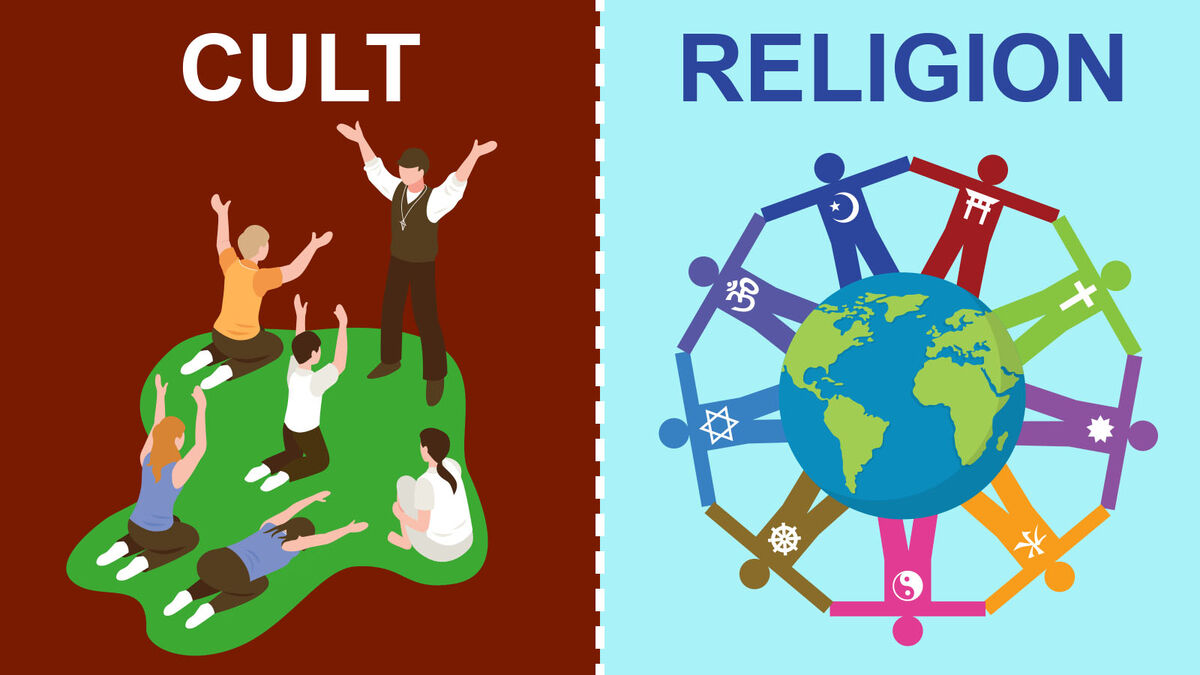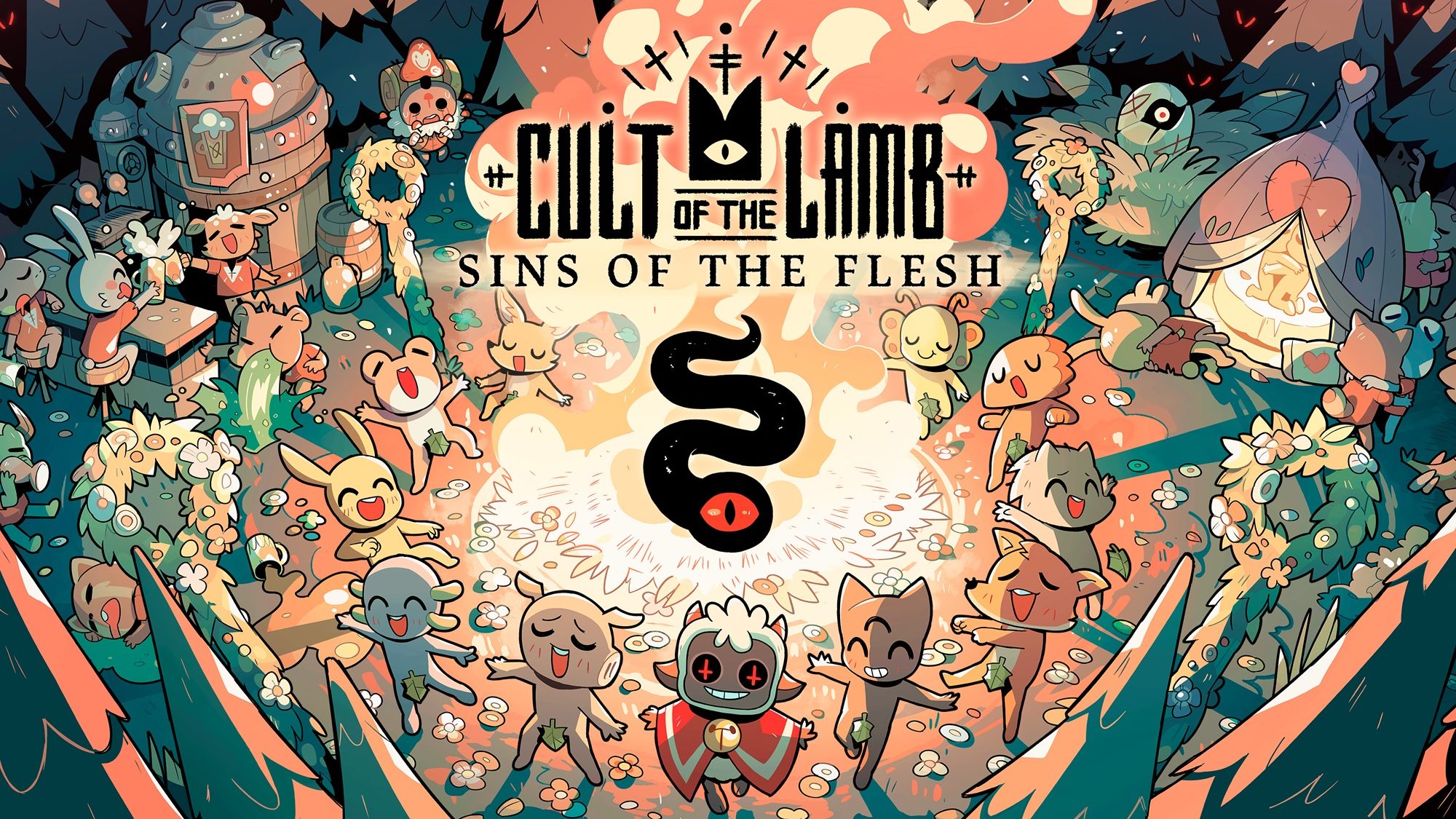Ever wondered what exactly makes a cult tick? Well, buckle up, because we're diving deep into the world of cults, their origins, and why they continue to intrigue and terrify us at the same time. Cults have been around for centuries, and their influence on human behavior is both fascinating and unsettling. Whether you're curious about their structure or just want to know how they work, you're in the right place.
Let's start with the basics. Cults are often misunderstood, and the term itself carries a lot of baggage. But what exactly defines a cult? In the simplest terms, it's a group with a set of beliefs or practices that are considered outside mainstream society. These groups can be religious, political, or even centered around a single charismatic leader. And trust me, the stories behind these groups are wild.
Throughout history, cults have played a significant role in shaping cultural narratives. From ancient mystery religions to modern-day movements, they've always been around, influencing and sometimes even challenging societal norms. But why do people join them? What drives someone to abandon their old life and follow a leader they barely know? Let's find out.
Read also:Mo Netflix The Ultimate Guide To Understanding The Phenomenon
What Exactly Is a Cult?
Okay, so let's break it down. A cult is essentially a group that operates outside the boundaries of mainstream society. It often centers around a specific belief system or a charismatic leader who exerts significant influence over its members. Now, here's the kicker: not all cults are bad. Some might just be unconventional communities with unique practices. But yeah, some of them? They're straight-up creepy.
Here are a few key characteristics that define most cults:
- A strong, often authoritarian leader who demands loyalty.
- Strict rules and rituals that members must follow.
- Isolation from the outside world to reinforce group identity.
- Intense indoctrination techniques to keep members in line.
So, why do we even care about cults? Well, they offer a glimpse into the darker corners of human psychology. They show us how far people will go for belonging, purpose, or even just a sense of identity. And let's be real, the stories are always juicy.
The Origins of Cults
Cults have been around for as long as humans have formed communities. Back in the day, they were often religious or spiritual movements that challenged the status quo. Think about ancient mystery religions in Greece or Egypt. These groups promised enlightenment, salvation, or some other form of spiritual fulfillment. Sound familiar?
In more recent times, cults have taken on different forms. The 20th century saw the rise of many infamous groups, like the Peoples Temple led by Jim Jones or the Manson Family. These groups captured the public's imagination (and fear) with their extreme behaviors and tragic endings. But what drives someone to create a cult in the first place?
Often, it's a combination of charisma, ambition, and a desire for power. Leaders of cults tend to be incredibly persuasive individuals who can draw people in with their vision or message. And once they have a following, they use that power to shape the group's identity and direction.
Read also:Athletic Club Vs Viktoria Plze328 The Epic Clash Of Titans In European Football
Why Do People Join Cults?
This is where things get really interesting. People join cults for a variety of reasons, and it's not always about brainwashing or coercion. Sometimes, it's as simple as feeling lost or disconnected from the world. Cults offer a sense of belonging, purpose, and community that many people crave. And let's face it, in today's fast-paced, often isolating world, that can be incredibly appealing.
Here are some common reasons why people might join a cult:
- A need for meaning or purpose in life.
- A desire for community and connection.
- Vulnerability due to personal or societal issues.
- Influence from charismatic leaders or persuasive recruitment tactics.
But it's not just about vulnerability. Some people join cults because they genuinely believe in the group's mission or message. Others might be drawn in by the promise of adventure, excitement, or even financial gain. Whatever the reason, joining a cult is rarely a decision made lightly.
The Dark Side of Cults
Now, let's talk about the not-so-great stuff. While some cults are relatively harmless, others can be downright dangerous. We've all heard the stories of mass suicides, violent acts, or extreme isolation. These groups can manipulate their members into doing things they wouldn't normally do, often with tragic consequences.
One of the most infamous examples is the Jonestown massacre, where over 900 members of the Peoples Temple died after drinking cyanide-laced punch on the orders of their leader, Jim Jones. It's a chilling reminder of the power that cult leaders can wield over their followers. But how do they get away with it?
Well, it often comes down to control. Cult leaders use a variety of tactics to maintain power, including:
- Controlling information and communication.
- Creating a sense of fear or paranoia about the outside world.
- Using guilt or shame to keep members in line.
- Encouraging dependency on the leader or group.
It's a recipe for disaster, and unfortunately, it works more often than we'd like to admit.
Psychological Manipulation Techniques
Speaking of control, let's talk about the psychological tricks that cults use to keep their members in check. These techniques are designed to break down an individual's sense of self and replace it with loyalty to the group. It's a process known as thought reform, and it's incredibly effective.
Some common tactics include:
- Love bombing: showering new members with affection and attention to create a sense of belonging.
- Isolation: cutting off contact with the outside world to reinforce dependency on the group.
- Indoctrination: using repetitive messages or rituals to reinforce the group's beliefs.
- Punishment: using fear or guilt to punish dissent or disobedience.
It's a complex web of manipulation, and it can be hard for outsiders to understand how someone could fall under its spell. But trust me, it happens more often than you think.
Famous Cults in History
Let's take a quick look at some of the most infamous cults in history. These groups have left an indelible mark on the world, for better or worse. Here are a few you might have heard of:
- The Manson Family: led by Charles Manson, this group became infamous for a series of brutal murders in the late 1960s.
- Heaven's Gate: a UFO cult that made headlines in 1997 when 39 members committed suicide, believing they were ascending to an alien spacecraft.
- Aum Shinrikyo: a Japanese cult responsible for the 1995 Tokyo subway sarin attack, which killed 13 people and injured thousands.
These are just a few examples, but they highlight the diversity and complexity of cults throughout history. Each one has its own story, and each one offers a unique glimpse into the human psyche.
Lesser-Known Cults
While the big names get all the attention, there are plenty of lesser-known cults that are just as fascinating. Take the Branch Davidians, for example. This religious group gained notoriety during a 51-day standoff with law enforcement in Waco, Texas, in 1993. Or what about the Order of the Solar Temple, a French-Canadian cult that saw multiple mass suicides in the 1990s?
These groups might not be as well-known, but their stories are just as compelling. They remind us that cults come in all shapes and sizes, and they can pop up anywhere, anytime.
How to Spot a Cult
So, how do you know if a group is a cult? Well, there are a few red flags to watch out for:
- Excessive control over members' lives, including finances, relationships, and daily activities.
- Charismatic leaders who demand unquestioning loyalty.
- Isolation from family and friends outside the group.
- Intense indoctrination or recruitment tactics.
If you notice any of these signs, it might be time to take a closer look. Of course, not every group that fits these criteria is automatically a cult, but it's worth being cautious.
And if you're ever in a situation where you suspect someone you know is involved with a cult, there are resources available to help. Organizations like the International Cultic Studies Association offer support and guidance for those affected by cults.
The Appeal of Cults in Pop Culture
Cults have always fascinated the public, and it's no surprise that they've become a staple of pop culture. From movies like "The Master" to TV shows like "Waco," we can't seem to get enough of these stories. But why?
Well, cults offer a unique blend of mystery, drama, and human psychology that's hard to resist. They challenge our understanding of what drives people to do the things they do, and they often blur the lines between good and evil. Plus, let's be honest, the stories are usually pretty wild.
But it's not just about entertainment. Pop culture also serves as a way to process and understand the impact of cults on society. By exploring these stories, we can gain a deeper understanding of the forces that shape human behavior.
The Future of Cults
So, where do cults go from here? With the rise of the internet and social media, it's easier than ever for groups to form and spread their message. While this can be a positive thing, it also means that harmful or manipulative groups can reach a wider audience.
As we move forward, it's important to remain vigilant and informed. By understanding the dynamics of cults and the tactics they use, we can better protect ourselves and those around us. And who knows? Maybe someday we'll find a way to harness the positive aspects of cult-like communities without falling into the traps of manipulation and control.
What Can We Learn from Cults?
At the end of the day, cults offer a valuable lesson about the human condition. They show us the power of belief, the importance of community, and the dangers of blind loyalty. By studying cults, we can gain insight into the forces that drive us as individuals and as a society.
So, whether you're fascinated by their stories or just want to understand them better, cults are a topic worth exploring. And who knows? You might just learn something about yourself along the way.
Conclusion
Alright, we've covered a lot of ground here. From the origins of cults to their impact on society, we've explored the fascinating and sometimes unsettling world of these alternative communities. Cults may be controversial, but they offer a unique window into the human experience.
So, what can you do with this information? Well, for starters, you can share this article with your friends and family. Spread the word about the dangers of cults and the importance of staying informed. And if you're ever in doubt, don't hesitate to reach out for help.
Thanks for reading, and remember: knowledge is power. Stay curious, stay informed, and most importantly, stay safe out there.


